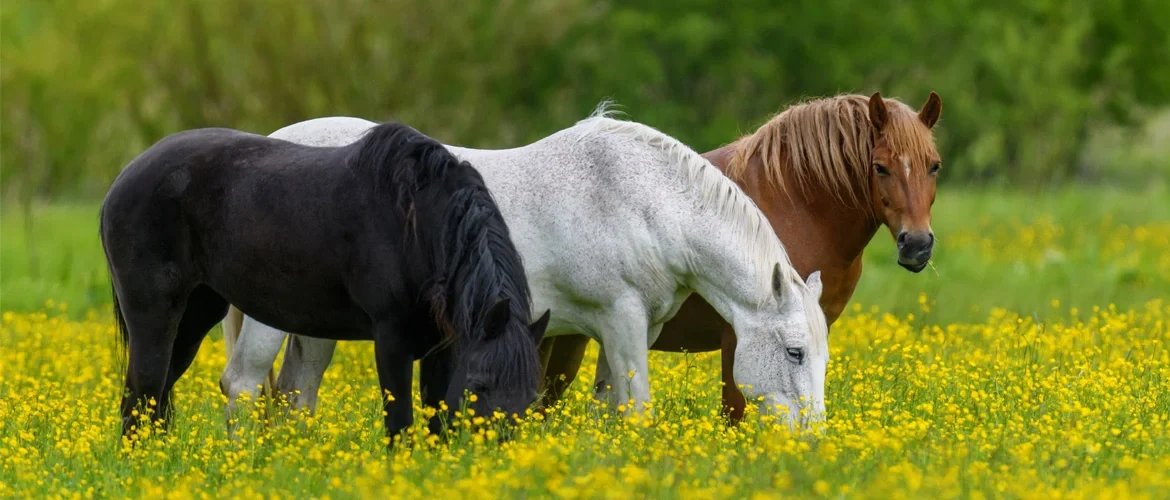Pregnancy in mares is understood as a critical period during which meticulous attention is required in all aspects, especially regarding nutrition. During this stage, the mare not only nourishes herself but also provides the essential nutrients for the proper development and growth of the foal. A well-designed and properly provided diet during pregnancy is crucial to ensure the mare’s health, successful delivery, and the subsequent birth of a healthy foal.
This means, for example, that it is pointless to breed with the best stallion if the mare is going to have nutritional deficiencies during pregnancy, resulting in a weak foal.
While mares can survive on a diet based on pasture and forage, it generally does not provide the nutritional levels needed for optimal fetal development. If the mare does not receive the appropriate nutrients, she will be forced to rely on her own resources to compensate for deficiencies, which can negatively affect both her health and the foal’s health.
A poor diet during pregnancy can lead to a series of problems. A lack of iron and other essential nutrients can cause weakness, anemia, and fatigue in the mare. Furthermore, it can result in reproductive issues, affecting the mare’s fertility and increasing the risk of complications during delivery. It can also lead to poor fetal development, affecting the growth and development of the foal, which can result in long-term health problems.
¿Cómo crear un buen plan nutricional?
At Ovohorse, we are aware that nutrition during pregnancy is a crucial factor to ensure you have a healthy foal next season in your stables. Therefore, we detail what a good nutritional plan should include to achieve this goal:
Gradual increase in nutrients:
Starting from the fifth month of pregnancy, a gradual increase in ingredients in the diet should begin, under the guidance of an equine nutritionist. The goal of this increase is for the mare to slowly gain weight until the tenth month of gestation, where she should ultimately have gained 10% of her normal weight.
Despite this, it is essential that the mare maintains a good body condition that allows her to provide everything the foal needs during pregnancy, with a condition score of 6.5 on the Henneke scale. In other words, the mare should not be overweight, but she should gain weight slightly.
Enrichment with minerals and vitamins:
It is essential that the mare’s diet includes necessary minerals such as calcium, phosphorus, copper, zinc, and magnesium, which are crucial for the foal’s bone development. All these factors depend on each individual mare, so we recommend that you consult an equine nutritionist for guidance.
Dental care:
The mare’s oral health is fundamental for the proper absorption of nutrients. If she doesn’t chew well, she can’t process all the vitamins needed for both herself and the foal. Regular dental check-ups and any necessary treatments are recommended.
Regular deworming:
Along with your veterinarian, it’s ideal to have an appropriate deworming program, as this helps prevent parasitic diseases that could affect the health of the mare and foal.
Exercise and movement:
The mare should have access to a spacious area where she can move freely to promote blood circulation and allow her to stay calm during her pregnancy.
Preparation for birth:
Two weeks before the expected birth, the mare should be moved to the location where she will give birth. This will help her develop colostrum with specific antibodies for the environment, which is vital for the foal’s health.
Considering all these factors, the next step is to work with professionals in this field, including veterinarians and nutritionists with their respective periodic check-ups. Both will develop a specific plan for each mare to ensure all her needs are met, resulting in a successful birth and a healthy, strong foal.
It is important to remember that this article is for informational purposes only and should not replace the advice of a veterinarian.



